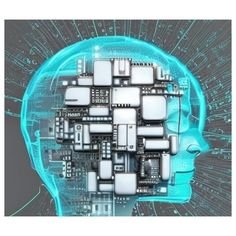Explore the intricate ethical landscape of Artificial Intelligence (AI) in our thought-provoking blog, "The Ethics of Artificial Intelligence: Are We Creating Our Own Downfall?" Uncover the promises and perils of AI, from transformative potential to ethical dilemmas. Delve into the importance of transparency and accountability in AI development, striking a delicate balance between regulation and innovation. Join us on a journey to understand how, with a human touch and ethical considerations, we can shape an AI future that serves humanity, not its downfall.

In an era dominated by technological innovation, the rise of Artificial Intelligence (AI) has sparked both excitement and trepidation. The promises of AI, from revolutionizing industries to solving complex problems, are juxtaposed against ethical dilemmas that raise crucial questions about our future. This blog embarks on a deep exploration of "The Ethics of Artificial Intelligence: Are We Creating Our Own Downfall?" to dissect the complexities surrounding AI development and its potential impact on society.
Section 1: The Promise and Potential of AI
AI's allure lies in its transformative potential. From streamlining processes to enhancing efficiency and unlocking new possibilities, the promises are grand. Advancements in machine learning and deep neural networks offer unprecedented opportunities for progress. However, as we navigate this uncharted territory, ethical considerations become paramount.

Section 2: The Dark Side of AI: Ethical Dilemmas
The ethical landscape of AI is rife with challenges. Algorithmic bias, a pressing concern, reflects societal prejudices embedded in data, potentially reinforcing discrimination. Job displacement, another ethical dilemma, raises questions about economic inequality in the wake of automation. Privacy infringements and the potential weaponization of AI for malicious purposes cast shadows over its bright promises.

Section 3: Transparency and Accountability in AI Development
Addressing ethical concerns requires a commitment to transparency and accountability in AI development. Understanding the inner workings of AI algorithms becomes imperative to identify and rectify biases. Ethical AI demands unbiased datasets, responsible data collection, and ongoing scrutiny of system outputs. Developers and organizations must bear the responsibility of implementing and promoting ethical AI practices.

Section 4: Striking the Balance: Regulation vs. Innovation
The delicate balance between fostering innovation and implementing regulations is a central theme in the ethical debate around AI. Stricter regulations can safeguard against potential pitfalls, but they must not stifle innovation. This section explores the need for adaptable frameworks that ensure ethical AI development while allowing room for technological progress.

Section 5: The Human Touch: Ethical AI for a Better Future
Ultimately, the responsibility for ethical AI lies with humanity. Education and collaboration are essential in fostering a deep understanding of AI's ethical dimensions. Infusing human values into AI systems, prioritizing fairness, accountability, and transparency, is crucial for creating a future where AI serves humanity rather than jeopardizes it.
As we stand at the crossroads of AI's promises and ethical challenges, the choices we make today will shape our collective destiny. "The Ethics of Artificial Intelligence: Are We Creating Our Own Downfall?" is not just a question but a call to action. By navigating the complexities of AI with a conscientious human touch, we have the power to ensure that our pursuit of innovation does not become our own undoing. Join us in this exploration of the ethical dimensions of AI, where the focus is not just on developing AI but on crafting a future where technology uplifts rather than undermines the human experience.